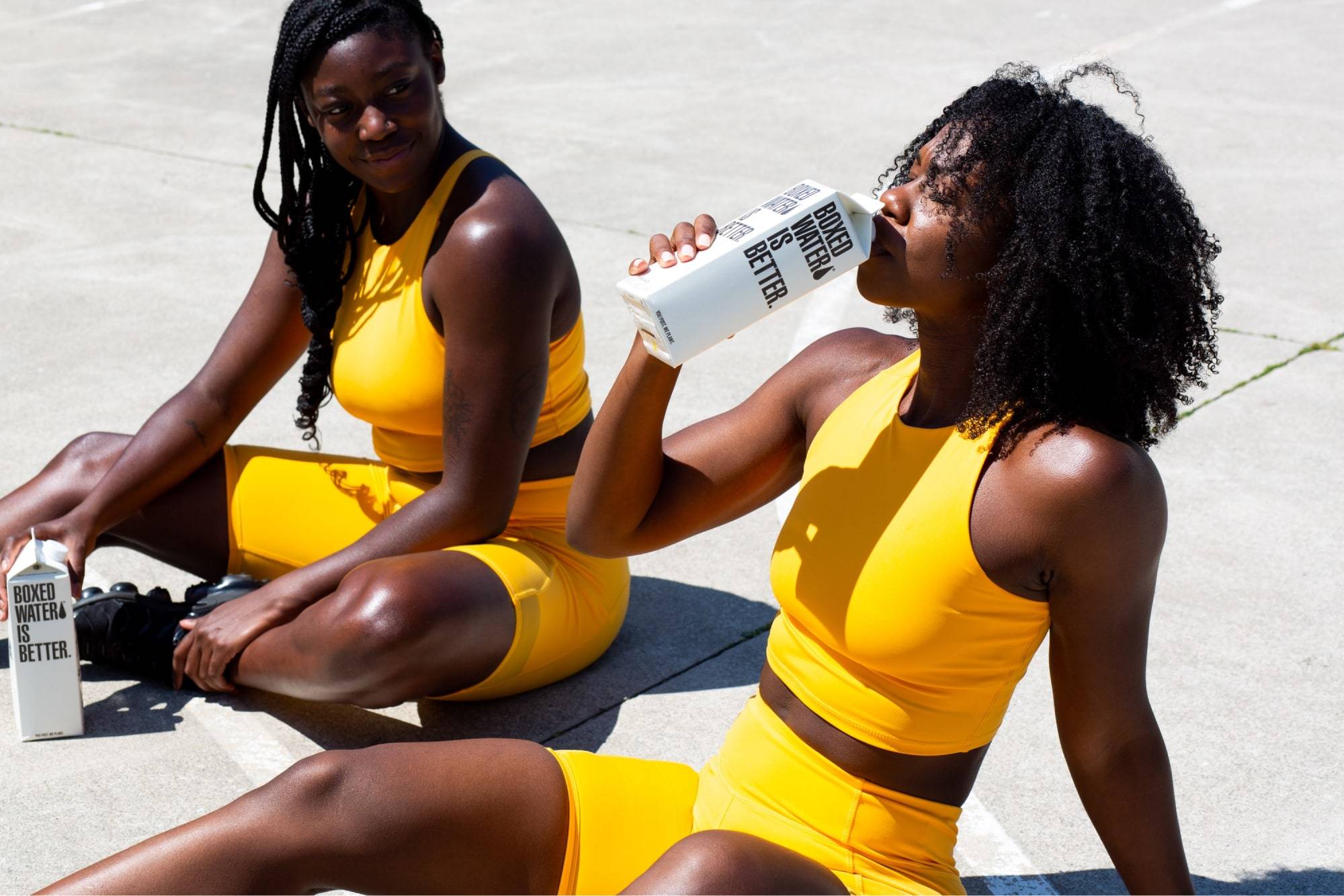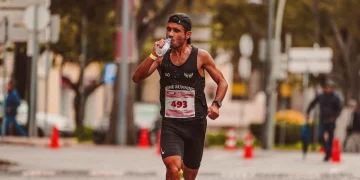A marathon is a highly-anticipated and very serious event for runners. Conquering such an event is a reason to be proud.
However, finishing a marathon is only one stage in your running life, after which you will want to go on to set and achieve new goals. Therefore, it is important to know how to recover from a marathon and get back to training faster with renewed vigor.
1. Keep an Eye on Hydration
What to do after a marathon starts with hydrating your body with water or a sports drink to replenish electrolytes. Your goal is to drink 20-24 ounces of fluid for every pound of weight you lose through sweat.
Weigh yourself before and after the race to establish the required amount of fluid. And don’t drink all at once. Take in fluids gradually to avoid feeling nauseous.
2. Be Careful with Alcohol
Running a marathon is an undeniable feat, so you may want to celebrate this event in a bar. But you should know that alcohol interferes with muscle protein synthesis, which means your muscles cannot recover from a marathon properly.
Besides, alcohol removes fluid and salt from the body, which is dangerous given the dehydration caused by the race. Therefore, drink adult beverages only after replenishing the required amount of liquid and, of course, in moderation.
3. Don’t Stop Moving
After crossing the finish line, try to walk for at least 10-20 minutes and not sit down immediately. A short walk will help your heart rate gradually decrease, return blood circulation to a resting state, and remove lactic acid from your muscles, thereby starting the post-marathon recovery process.
4. Put on Compression Socks
The study found that wearing compression stockings for 48 hours after a marathon significantly improves functional recovery for runners by reducing muscle inflammation.
Specifically, study participants’ run time to exhaustion increased by 2.6% as early as 2 weeks after the race. Therefore, it would be great to take these socks with you and put them on right after the finish.
5. Refuel Your Body
Consuming protein and carbohydrates in the first hours after a race can positively affect marathon recovery. Protein prevents muscle breakdown and maintains muscle mass, while carbohydrates replenish glycogen levels and your energy stores. A chicken or turkey sandwich, vegetables, fruit, and pasta are good examples of post-marathon meals.
6. Avoid Anti-Inflammatories
Some runners are tempted to take ibuprofen or other painkillers after a marathon. But such drugs carry risks for the gastrointestinal tract, kidneys, and cardiovascular system. And with the physiological stress caused by the long run, these risks increase.
In addition, anti-inflammatories may interfere with the increase in muscle strength, as they weaken the inflammatory process necessary for muscle healing. This, in turn, slows down your recovery.
7. Don’t Rush to Train
You may want to return to your marathon training plan as soon as possible. But do not rush into it, as your body is actually very weakened.
What happens to your body after a marathon? Muscular necrosis and inflammation occur. The result is a decrease in muscle mass and endurance.
The exhausting race also damages the skeletal and myocardial tissue and undermines the immune system. These conditions may not always be as noticeable as pain, but they can affect your health and performance in the future, knocking you out of your workouts.
Therefore, scientists who study the effect of long runs on the body recommend including 7-10 days of rest in your marathon recovery plan.
8. Visit Masseur
A massage is an effective strategy for recovering from the first marathon and any subsequent long races. It increases blood circulation as well as the mobility and range of motion of tense muscles, thereby eliminating soreness and improving perceived recovery.
However, the massage must be gentle; otherwise, you risk damaging the muscles even more. Therefore, contact a qualified sports masseur.
9. Sleep Enough
Lack of sleep interferes with muscle recovery. So make sure you get the right amount of sleep – 1 hour of sleep for every 2 hours you’re awake, plus 1 extra minute for every mile you run per week.
After a marathon, you need to sleep even more than usual to recover faster. However, a long race produces a significant adrenaline rush that remains elevated for about two days. So try meditation, turning off your smartphone before going to bed, and other methods of falling asleep.
10. Don’t Overload Yourself
The question of how long does it take to recover from a marathon has no single answer as it depends on your age, health, diet, and other factors. But the average marathon recovery time is 4 weeks.
During this time, you should not exhaust your body with intense workouts. Instead, focus on exercises for mobility and restoration of muscle strength, such as walking, yoga, strength training, stretching, swimming, and so on.
If you are puzzled over “how soon can you run after a marathon?” the good news is that running is not prohibited during the recovery period. However, you should run at a moderate pace, as running too fast after the marathon increases the risk of injury.
It may seem that such a sparing regimen is holding you back. But, in this way, you thank your body for how it performed on X-day, and this care will help you perform well in the next training segment.
Wrap Up
As you can see, recovery after a marathon is as much an art as training for it. And rest is an integral part of it, even if you are so inspired by the finish line that you think you are ready to run the next day.
If you find it difficult to force yourself to rest, take inspiration from Desiree Davila, American long-distance runner and Olympic champion. As an elite athlete, she understands the importance of recovery and sticks to 2 weeks off and 2 weeks of light training to help her reach new heights. So when X-day is over, take care of yourself and don’t rush to put on running shoes.






